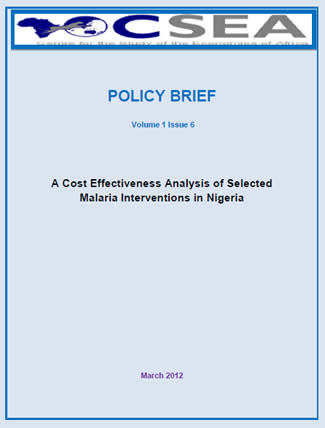Recent statistics show that Nigeria ranks among the top five countries in termsof malaria incidence and deaths in the world. Reports indicate that 100 percentof the population is at risk of contracting malaria. At present, there are about4,295,686 confirmed cases of malaria in Nigeria. In 2009, the number of deathsattributed to malaria was estimated at 7,522. In the same year, 658,732 out of1,115,966 hospital admissions were attributed to malaria, out of the 7,296reported malaria deaths in children 4, 126 of these deaths were in childrenunder the age of five. This trend together with and its possible economic andfiscal impact, has made it imperative for the Nigerian government to fundmalaria interventions. Recently, Nigeria, with some financial support fromdonors, implemented the Indoor Residual Spraying (IRS) and the Long LastingInsecticidal Nets (LLINs) programs.
This brief summarizes the findings of a cost effectiveness analysis conducted onlong-lasting insecticide treated nets and indoor residual spraying interventionsimplemented in Jigawa State under the National Malaria Control Programme(NMCP).

